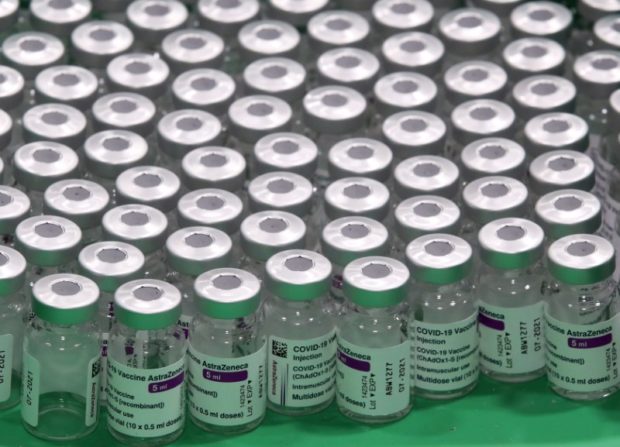S. Korea won’t give AstraZeneca COVID-19 vaccine to people under 50

Empty vials of Oxford/AstraZeneca’s COVID-19 vaccine are seen at a vaccination centre in Antwerp, Belgium March 18, 2021. REUTERS FILE PHOTO
SEOUL — South Korea’s top health agency said Thursday that effective immediately, people under 50 will be offered an alternative to the AstraZeneca COVID-19 vaccine, raised by 20 years from the current cutoff of 30, due to a rare but possible risk of serious blood clots.
The Korea Disease Control and Prevention Agency’s Commissioner Jeong Eun-kyeong told a news briefing that for people in their 50s and above, the benefits of receiving an AstraZeneca vaccine were “clearly greater” than for younger people.
As such, people younger than 50 who had the AstraZeneca vaccine as their first doses will receive Pfizer as their second. There are some 1.6 million first-dose recipients of the AstraZeneca vaccine who will be vaccinated under the “mix-and-match” schedule.
Thursday’s announcement comes after the health advice issued in mid-April said the “benefits of the AstraZeneca vaccine outweigh the potential risks for anyone aged 30 and older.”
Since then, Korea has officially recognized two cases of thrombosis with thrombocytopenia syndrome, or TTS, in people who received their first AstraZeneca shots, out of 26 such reports filed. Both cases were men in their 30s, one of whom died, while the other is “in a stable condition, recovering.”
Article continues after this advertisementThe change in age advice is not expected to affect the country’s rollout, as its purchased batch of 20 million AstraZeneca vaccine doses is already nearly exhausted. From this month, Pfizer supplies will be mainly available.
Article continues after this advertisementAfter the first fatal case of blood clotting was announced on June 16, the agency said in response to press inquiries that the vaccine‘s risks and benefits for different age groups “need to be reevaluated.”
The agency said the latest decision has been reached in the latest meeting of the national advisory committee on immunization practices, although it did not say how many such meetings have been conducted for AstraZeneca risk-benefit analyses.
The agency said the recommended age range for the COVID-19 vaccine made by Johnson & Johnson, another adenovirus-vaccine that is also associated with risks of blood clots, will remain at 30 and up for now. “There have been no reports of blood clots among the 1 million people who were given the Johnson & Johnson vaccine here,” Jeong said.
According to the agency, some of the symptoms of the vaccine-induced blood clots include persistent or severe headache, blurred vision, shortness of breath, abdominal or chest pain, swelling in the leg and easy bruising. People presenting these symptoms from the fourth to 28th day after vaccination are strongly advised to seek medical help.
From the last week of July, by which time the first-dose vaccinations of the remainder of people in their 60s will be completed, vaccine eligibility will be open to 55- to 59-year-olds. The 7.4 million people in the cohort of 50-somethings will be offered Moderna’s vaccine.